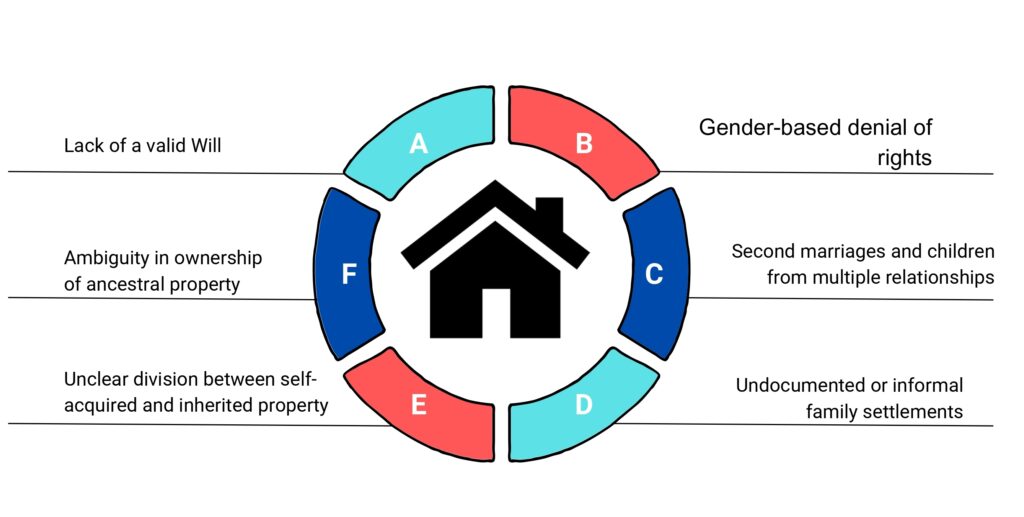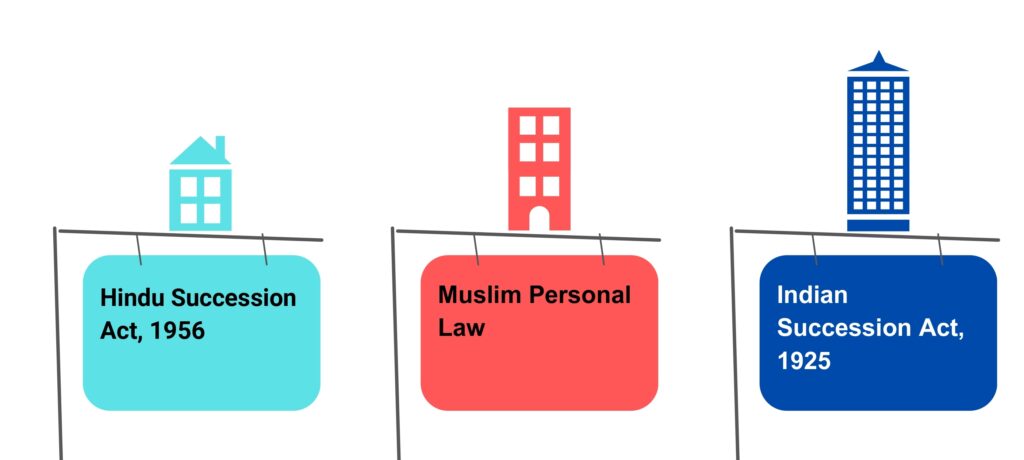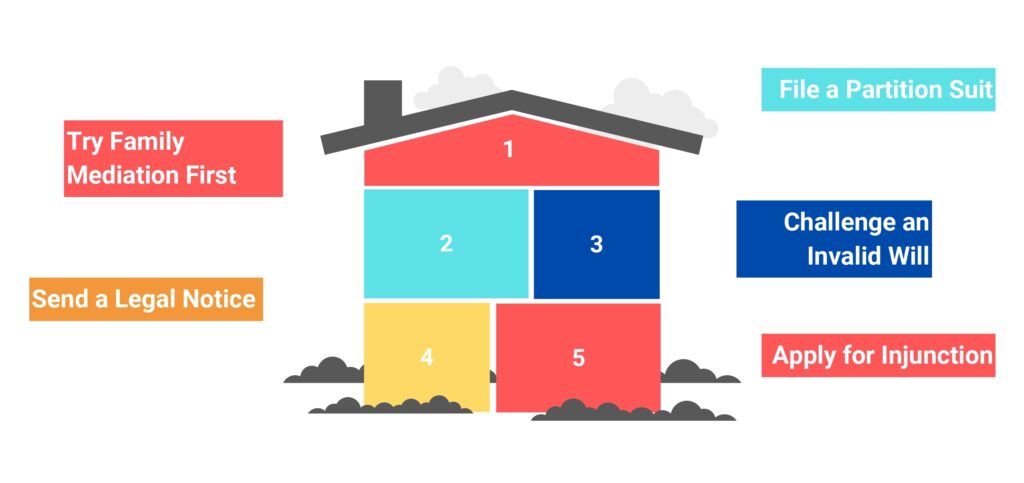Tensions over property can fracture even the closest families. But do you know what the law actually says when inheritance turns into a battleground?
Let’s decode the legal landscape behind family property disputes, so you know your rights and options.
Why Do Property Disputes Happen in Families?

Family property disputes are more common than you think, especially in India, where joint family systems and ancestral wealth often clash with modern-day legal rights.
Common Triggers:
- Lack of a valid Will
- Ambiguity in ownership of ancestral property
- Unclear division between self-acquired and inherited property
- Gender-based denial of rights
- Second marriages and children from multiple relationships
- Undocumented or informal family settlements
These conflicts can fester for years if not handled legally and with clarity.
Types of Property: Ancestral vs. Self-Acquired
Before diving into rights and legal procedures, it’s crucial to understand the type of property involved.
🏡 Ancestral Property
- Inherited up to four generations.
- Cannot be sold or transferred without consent from all coparceners.
- Governed by Hindu Succession Act, 1956 for Hindus.
🧑💼 Self-Acquired Property
- Bought or earned by an individual from personal income.
- The owner has full rights to transfer, gift, or Will it to anyone.
Key Legal Point:
If a father gifts or wills his self-acquired property to one child, others cannot claim a legal share unless there’s evidence of ancestral status.
Legal Framework Governing Family Property Disputes

India’s legal system provides a well-defined (but sometimes complex) framework to resolve property matters in families.
🏛 Hindu Succession Act, 1956 (as amended in 2005)
- Applies to Hindus, Buddhists, Jains, and Sikhs.
- Daughters have equal coparcenary rights as sons (post-2005 amendment).
- If no Will exists, property is divided among Class I heirs: spouse, children, and mother.
🕌 Muslim Personal Law
- Governed by customs and Quranic laws, not a codified statute.
- Fixed shares for male and female heirs.
- Concept of ancestral property doesn’t exist.
✝️ Indian Succession Act, 1925
- Governs succession for Christians, Parsis, and others.
- Equal rights for sons and daughters.
What If There’s No Will? (Intestate Succession)
When someone dies without a Will, the property is divided as per personal law:
Example – Hindu Male Dies Intestate:
Property is divided equally among:
- Son(s) and daughter(s)
- Widow
- Mother (if alive)
👉 Important: A daughter married before 2005 still has the same rights post the amendment.
What Can You Do If There’s a Dispute?

If a property dispute arises, here are the steps you can take:
1. Try Family Mediation First
- Less expensive and faster.
- Keeps relationships intact.
2. Send a Legal Notice
- Through a lawyer, stating your claim and intent to take legal action.
3. File a Partition Suit
- If multiple people co-own a property and there’s no agreement, file a suit under Code of Civil Procedure, 1908 – Section 9.
4. Challenge an Invalid Will
- If the Will appears forged, unfair, or made under duress.
5. Apply for Injunction
- To stop sale or transfer of disputed property during the case.
Key Tips to Avoid Future Disputes

- Draft a clear, registered Will
- Digitize and safely store property documents
- Do family settlements with mutual consent
- Understand who your legal heirs are under your personal law
Final Word: Clarity Today, Peace Tomorrow
Family property disputes are painful, emotional, and legally draining. But knowing what the law says can prevent misunderstandings, protect relationships, and secure your rightful share.
Powered by Edzorb Law
India’s #1 platform for Judiciary & Law Aspirants.
Whether you’re a law student, aspirant, or just curious about how the law works in real life, Edzorb Law helps you decode the law with:
- Concise notes
- Monthly Legal Updates
- LawDecoded blogs
- Powered test prep
- Expert strategy insights
👉 Dive deeper into law, prep smarter, and stay ahead with Edzorb Law – where legal learning meets innovation.










 Features
Features






